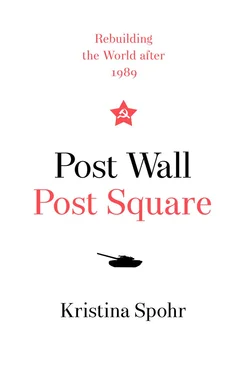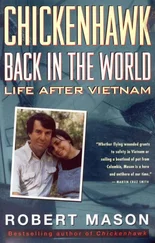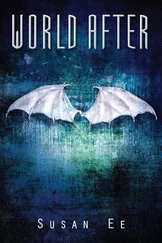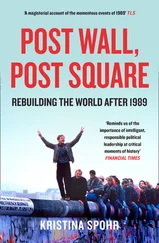Both the British and the Germans had been manoeuvring ahead of the summit. Thatcher met Gorbachev on 6 April in London. On a human level, the two of them had got on famously ever since their first encounter in December 1984, before he became general secretary, when she proclaimed that Gorbachev was a man with whom she could ‘do business’. [97]At their meeting in 1989 the personal chemistry was equally evident but so were their fundamental differences on nuclear policy. Gorbachev launched into a passionate speech in favour of nuclear abolition and ‘a nuclear-free Europe’ – which Thatcher totally rejected – and he vented his frustrations with Bush for not responding more positively to his disarmament initiatives. The prime minister, playing her preferred role as elder stateswoman, was at pains to reassure him: ‘Bush is a very different person from Reagan. Reagan was an idealist who firmly defended his convictions … Bush is a more balanced person, he gives more attention to detail than Reagan did. But as a whole, he will continue the Reagan line, including on Soviet–American relations. He will strive to achieve agreements that are in our common interest.’
Gorbachev jumped on those last words: ‘That is the question – in our common interests or in your Western interests?’ The reply came back: ‘I am convinced in the common interest.’ Her subtext was clearly that she was the one who could broker the relationship between the two superpowers. [98]
Privately, however, Thatcher was worried about the new US president. She had developed a close, if sometimes manipulative, rapport with ‘Ronnie’ and had felt secure about the centrality of the much-vaunted Anglo-American ‘special relationship’ in US foreign policy. [99]With Bush, the situation was less clear. It appeared that the new administration’s ‘pause’ also entailed a review of relations with Britain. And she felt that the State Department under Baker was biased against her and inclined to favour Bonn rather than London. [100]Her suspicions were not unfounded. Bush, a pragmatist, disliked Thatcher’s dogmatism and certainly did not intend to let her run the Alliance. Both he and Baker found her difficult to get on with, whereas Kohl seemed an agreeable partner. [101]
The problem in Bonn was not on the personal level but the political, because of the deep rift within the coalition. In several phone conversations during April and May, Kohl tried to reassure Bush of his loyalty to the transatlantic partnership and that he would not let the SNF issue ruin the summit. His language was almost desperate – a point not concealed even in the official American ‘telcon’ record of their talks. ‘He wanted the summit to be successful … He wanted the president to have a success. It would be the president’s first trip to Europe as president. The president was a proven friend of Europeans and, in particular, of the Germans.’ [102]
The pre-summit bickering in Europe did not faze Bush. He knew that Kohl’s aim was ‘a strong NATO’ and that the chancellor had ‘linked his political existence to this goal’. [103]But the prognostications before the summit were distinctly bleak. ‘Bush Arrives for Talks With a Divided NATO’, the New York Times headlined on 29 May. The paper claimed that Bonn’s insistence on reducing the threat of SNFs to German territory raised fears in Washington, London and Paris of nothing less than the ‘denuclearisation’ of NATO’s central front. Such was the gulf, the newspaper noted, that no communiqué had been agreed in advance, which meant that NATO’s sixteen leaders would ‘have to thrash it out themselves’ at the summit. One NATO delegate confessed, ‘I honestly don’t know if a compromise is possible.’ [104]
The president, however, had something up his sleeve when he arrived in Brussels. He presented his allies with a radical arms-reduction proposal not on SNFs but on conventional forces in Europe. This had not been easy to hammer out in Washington but fear of an alliance crisis in Brussels enabled Bush to bang heads together. What the president dubbed his ‘conventional parity initiative’ of 275,000 troops on each side would mean the withdrawal of about 30,000 Americans from Western Europe and about 325,000 Soviet soldiers from Eastern Europe. This was to be agreed between the superpowers within six to twelve months. Bush’s initiative was intended to probe Gorbachev’s longer-term readiness to accept disproportionate cuts that would eliminate the Red Army superiority in Eastern Europe on which Soviet domination of their satellite states had always depended. But more immediately, according to the New York Times , it was meant to ‘bring about a dramatic shift in the summit agenda’, thereby ‘swamping the missile discussion’. And this indeed proved to be the case. After nine hours of intense debate the allies accepted Bush’s proposals on cuts to conventional forces in Europe and especially his accelerated timetable. In return, the United States committed itself to ‘enter into negotiations to achieve a partial reduction of American and Soviet land-based nuclear missile forces’ as soon as the implementation of a conventional-arms accord was ‘under way’. This deal kept the Genscherites happy because of the prospect of rapid SNF negotiations, while Thatcher and Mitterrand – representing the two European nuclear powers – were gratified that there had been no further erosion of the principles of NATO’s nuclear deterrence per se. And it also suited Bush: keen to lower the conventional-warfare threat in Europe, he had been adamant that on the issue of nukes there should be ‘no third zero’. [105]
So the NATO summit that had seemed so precarious ended up as a resounding success. ‘An almost euphoric atmosphere’ surrounded the final press conference. Kohl declared ebulliently that he now perceived ‘a historic chance’ for ‘realistic and significant’ progress on arms control. He could not resist poking fun at his bête noire, Thatcher, who, he said, had come to Brussels taking a very hard line against any SNF negotiations and fiercely opposing concessions to the Germans. ‘Margaret Thatcher stood up for her interests, in her temperamental way,’ the chancellor remarked. ‘We have different temperaments. She is a woman and I’m not.’ [106]
The remarkably harmonious outcome of the Brussels meeting – ‘we were all winners’, proclaimed Kohl [107]– was a big boost for NATO at forty. Indeed, he felt it was the ‘best kind of a birthday present’ the Alliance could have. [108]But it was also a huge boon for Bush, who had been under attack at home for failing to give leadership to the Alliance and for surrendering the diplomatic initiative to Gorbachev. Now, however, with his compromise package he had turned the entire situation around. As Scowcroft reflected with satisfaction, after this ‘fantastic result’ the press ‘never returned to their theme of the spring – that we had no vision and no strategy’. [109]Brussels, stated an American reporter, was ‘Bush’s hour’. [110]
As soon as the NATO press conference was over, the president travelled on to a sunlit evening in Bonn, basking in the warm glow of his success. [111]At a state dinner that night in a grand eighteenth-century restaurant, the president toasted another fortieth anniversary – that of the Federal Republic itself. ‘In 1989,’ he declared expansively, ‘we are nearer our goals of peace and European reconciliation than at any time since the founding of NATO and the Federal Republic.’ He added: ‘I don’t believe German–American relations have ever been better.’ [112]
The following morning, 31 May, the Bush–Kohl caravan sailed on down the Rhine to the picture-book city of Mainz, capital of the Rhineland-Palatinate, Kohl’s home state. [113]‘The United States and the Federal Republic have always been firm friends and allies,’ the president announced, ‘but today we share an added role: partners in leadership.’ [114]
Читать дальше












